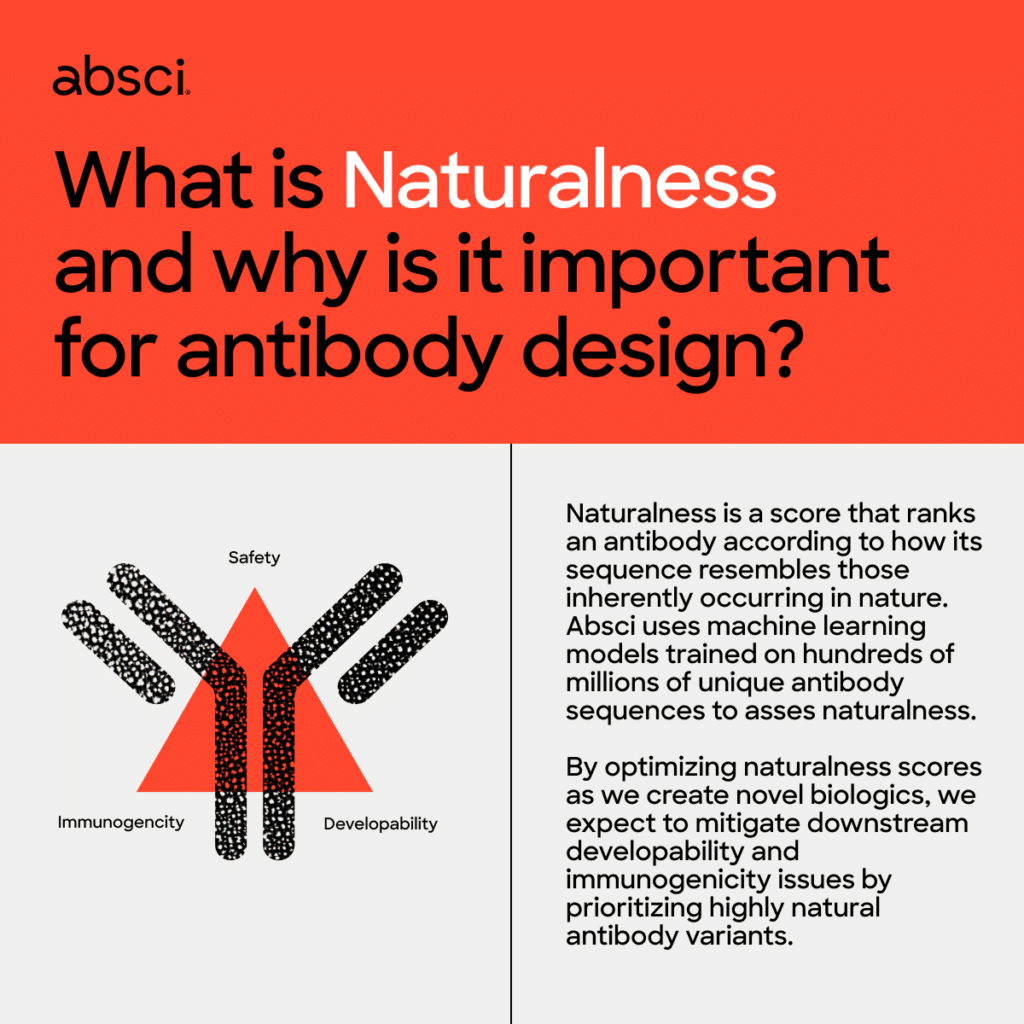What is Naturalness and why is it important for antibody design?
Jun 20, 2022
Naturalness is a score that ranks an antibody according to how its sequence resembles those inherently occurring in nature. With our AI-driven approach, we’ve developed a number of models for optimizing antibody and related lead drugs. One of those models scores what we call ‘Naturalness.’ This is an assessment of how similar a given antibody sequence is to those that occur in nature.
Similar to how ‘humanized’ antibodies are those that closely resemble antibodies that exist naturally in humans, Naturalness extends this concept to naturally occurring antibodies across species.
We’ve demonstrated that Naturalness is inversely associated with immunogenicity, which means antibodies with high Naturalness scores may have a lower likelihood of triggering unwanted immune responses.
By evaluating Naturalness against reported immunogenicity measures for 97 humanized therapeutic antibodies as compiled by Marks et al. in 2021, we found a negative association between Naturalness and immunogenicity. We’ve also shown that Naturalness is associated with drug developability as reported by the Therapeutic Antibody Profiler, an independent measure of five criteria for antibody developability published by Raybould and colleagues in 2019. In addition, we scored the Naturalness of sequences from a study reporting antibody production titers in HEK-293 cells. We found that those sequences with high Naturalness also had higher production titers relative to the low Naturalness sequences.
At Absci we are developing machine-learning algorithms to design new antibodies that have high Naturalness scores, as well as optimize existing lead sequences to help ensure better developability. Starting with a given antibody our algorithms work in an iterative fashion to optimize multiple parameters, including Naturalness and affinity, among others.
